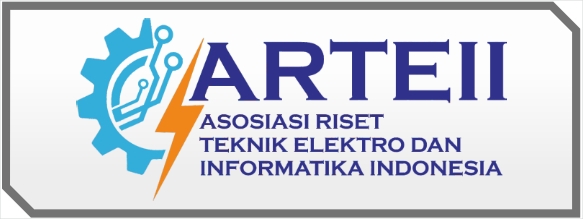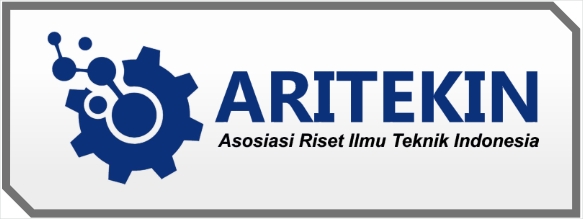Online Service Policy Reform for Building Permits at the Department of Capital Investment and One-Door Integrated Services of Boyolali District
DOI:
https://doi.org/10.55606/icesst.v3i1.365Keywords:
Policy Implementation, Services, Building PermitAbstract
Problem/Background (GAP): Building Construction Permit is a permit granted by the City/Regency Government to building owners to modify, build new, reduce and maintain buildings in accordance with administrative requirements and technical requirements. In its implementation, the aim of the IMB is to create an orderly layout and layout that is in accordance with the land use designation so that it will create harmony and balance between the environment and the building. To optimize public services to the community in the licensing sector which utilizes advances in information technology, the Boyolali Regency Investment and One-Stop Integrated Services Service has used a regionally managed online service system known as PTSP Online. This online service system was only implemented in 2020, where previously the Construction Building Permit (IMB) processing service was still carried out manually or offline. With this site, it is hoped that the quality of IMB licensing services can be improved more quickly and effectively. Objective: The purpose of this research is to determine and analyze the implementation of online-based Building Permit service policies and to determine the obstacles that occur in online-based Building Permit services. Method: The research design used in this research is qualitative research using descriptive methods and a deductive approach. Data collection techniques use interviews and documentation. Then the data collected was analyzed using data reduction techniques, data presentation and drawing conclusions. Results/Findings: The results of this research indicate that the implementation of the online building permit service policy in Boyolali Regency, Central Java Province has not been optimal because there are still obstacles in implementing the policy such as lack of socialization and information about online IMB regulations, the technology used is not optimal, lack of a technical team In the field, there are still brokers in online IMB processing. Conclusion: Based on the research conducted, the author suggests to DPMPTSP Boyolali Regency to carry out scheduled socialization so that the community is able to understand existing policies, increase supervision so that brokering practices are minimized, carry out repairs and maintenance of network systems, and recruit a team of technical employees.
References
Agustino, L. (2006). Basics of Public Policy. Bandung: CV. Alphabet.
Dwiyanto, A. (2006). Realizing Governance Through Public Services. Jakarta: Gramedia Pustaka. Busrah. (2012 ). Deductive Learning in Alkane Learning. South Sulawesi: Education Quality Assurance Institute (LPMP).
Fernandes. (2016). Theoretical-Legalistic-Empirical-Innovative Government Research Methodology. Bandung: CV Alfabeta.
Grindle, M. (1980). Politics and Policy Implementation in the Third World. New Jersey: Princeton University Press.
Indrajit, R. E. (2002). Building E-Government Applications. Jakarta: PT. Elek Media Komputindo.
Muhammad, I. (2003). Public Services in the Era of Globalization. Jakarta: PT Elek Media Komputindo.
Silalahi, U. (2012). Social Research Methods. Bandung: Refika Idatama.
Sinambela, L. P. (2016). Public Service Reform. Jakarta: Bumi Literacy.
Suaedi, F. W. (2010). Revitalization of State Administration: Bureaucratic Reform and E-Government. Yogyakarta: Graha Ilmu.
Sugiyono. (2018). Qualitative Research Methods. Bandung: Alphabeta. Susanta. (2006). Easy to manage IMB. Hope for Success: Jakarta
Van Meter, Donald S & Van Horn, Carl E. (1975). The Policy Implementation Process: A Concentual Framework in: Administration and Society
Wahab, S. A. (2015). Policy Analysis from the Formulation of Public Policy Implementation Models. Jakarta: Bumi Literacy.
Wahyuni, (2006). Research and Business Methodology, Andi Publisher: Yogyakarta. Winarno, B. (2012). Public Policy: Theory, Process, and Case Studies. Yogyakarta: CAPS
Legislation
Preamble to the 1945 Constitution Fourth Paragraph
Law Number 23 of 2014 concerning Regional Government
Law Number 28 of 2002 concerning Buildings
Government Regulation Number 24 of 2018 concerning Electronically Integrated Business Licensing Services
Presidential Regulation Number 97 of 2014 concerning One Stop Integrated Services
Presidential Regulation of the Republic of Indonesia Number 95 of 2018 concerning Electronic-Based Government Systems
Minister of Home Affairs Regulation Number 138 of 2017 concerning Guidelines for Implementing Regional One-Stop Integrated Services
Instruction of the Minister of Home Affairs Number 24 of 2006 concerning Guidelines for Providing One-Stop Integrated Services 122
Boyolali Regency Regional Regulation Number 2 of 2011 concerning Buildings
Boyolali Regency Regional Regulation Number 4 of 2011 concerning Building Permit Levy
Boyolali Regency Mayor Regulation Number 40 of 2020 concerning the Delegation of Licensing Authority to the Head of the Boyolali Regency One Stop Investment and Integrated Services Service and the Implementation of One Stop Integrated Services
Downloads
Published
How to Cite
Issue
Section
License
Copyright (c) 2024 The International Conference on Education, Social Sciences and Technology (ICESST)

This work is licensed under a Creative Commons Attribution-ShareAlike 4.0 International License.















